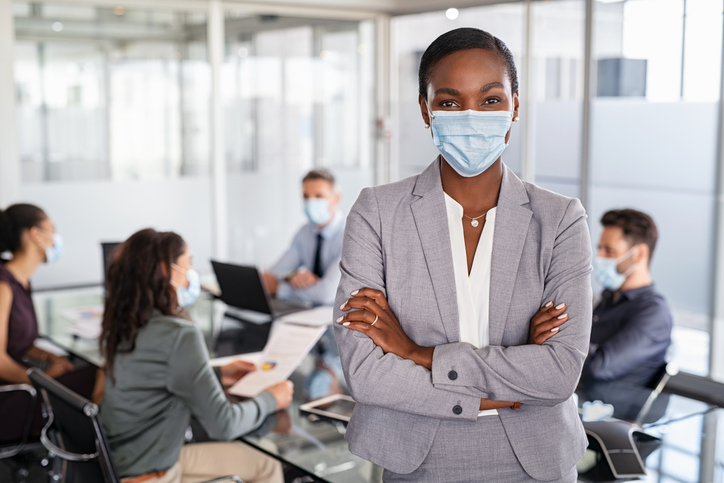
Yes — there is such a thing as mask mouth, and you’re not alone! But there are ways you can combat it.
The COVD-19 pandemic normalized wearing masks around the mouth to stop the spread of the virus. Although some COVID-19 restrictions have been lifted, masks are still required in most settings, especially public indoor places.
However, dental professionals have coined a new term that’s related to daily mask wearing. “Mask mouth” refers to a collection of symptoms linked to prolonged use of face coverings. Because of the ongoing pandemic (and a worrisome new variant), mask wearing may be with us for some time. Yet you can avoid the uncomfortable side effects of mask mouth by maintaining good oral health.
What is Mask Mouth?
Mask mouth isn’t a dental disorder. Rather, the condition is tied to several bothersome oral symptoms associated with mask wearing. When you wear a mask, your mouth loses moisture and produces less saliva. This causes one of the primary side effects of mask mouth — dry mouth — which leads to a host of other uncomfortable oral issues.
Less saliva also boosts bacterial growth, which raises the risk of gingivitis, or gum disease, and tooth decay. Saliva helps whisk away food particles and bacteria, so when your saliva level drops, bacteria and plaque have free reign to grow. Lastly, your breath might not smell as great when dry mouth and mask wearing trap unpleasant odors. And nobody wants bad breath!
So, What Exactly Causes Mask Mouth?
You’re Drinking Less Water. Understandably, it’s pretty hard to remember to sip water when a mask needs to constantly cover your mouth. But you need water to prevent dry mouth. So when you’re wearing a mask, try to find moments to hydrate whenever you can.
Your Breathing Changes. With a face covering, you may find yourself unconsciously breathing more through your mouth and not your nose, or you may tend to take short, shallow breaths instead of slow, deep breaths. When you breathe through your mouth, your saliva dries up quicker, leading to dry mouth and potentially other oral issues.
You’re Breathing in Recycled Air. The unfortunate fact of mask wearing is that it traps more carbon dioxide in your mouth. The amount you’re breathing isn’t toxic to your overall health, but it can increase the acid level in your mouth, putting you at risk of inflammation and gum disease.
How to Prevent Mask Mouth
It is as important as ever to be mindful and wear masks in public settings — not just for your own safety but for the safety of others, as well. Even with a mask, you can still take measures to ensure your oral health and combat mask mouth.
Practice Good Oral Hygiene. Mask wearing highlights the ongoing need for good and consistent oral hygiene practices. That means brushing twice a day, flossing daily, and keeping up with regular cleanings. If you notice any inflammation or excessive gum bleeding, contact your dentist immediately. Can’t get to the dentist immediately? Freshen up with sugar-free gum or alcohol-free mouthwash to keep dry mouth and stinky breath at bay.
Drink Water. As mentioned previously, water maintains your saliva level, so sip water whenever you can. Avoid tooth-decay boosters like coffee, alcoholic beverages, and sugary drinks, which also have a dehydrating effect.
Wear a Clean Mask. It’s easy to slip on the same mask day after day, but you really need to switch to a clean one after each wearing. Dirty masks trap bacteria and food particles that can re-enter your mouth.
Take a Break. Whenever it is safe to do so, you can take off your mask to breathe in fresh air.
Don’t Neglect Your Mouth!
Schedule an appointment at Espire’s Norman location today! Our highly trained dentists can check your teeth and give you tips on preventing mask mouth.
Don’t live near our Norman, Oklahoma office? Find one of our other locations near you.
Norman, OK
550 24th Ave. S.W.
Norman, OK 73069
